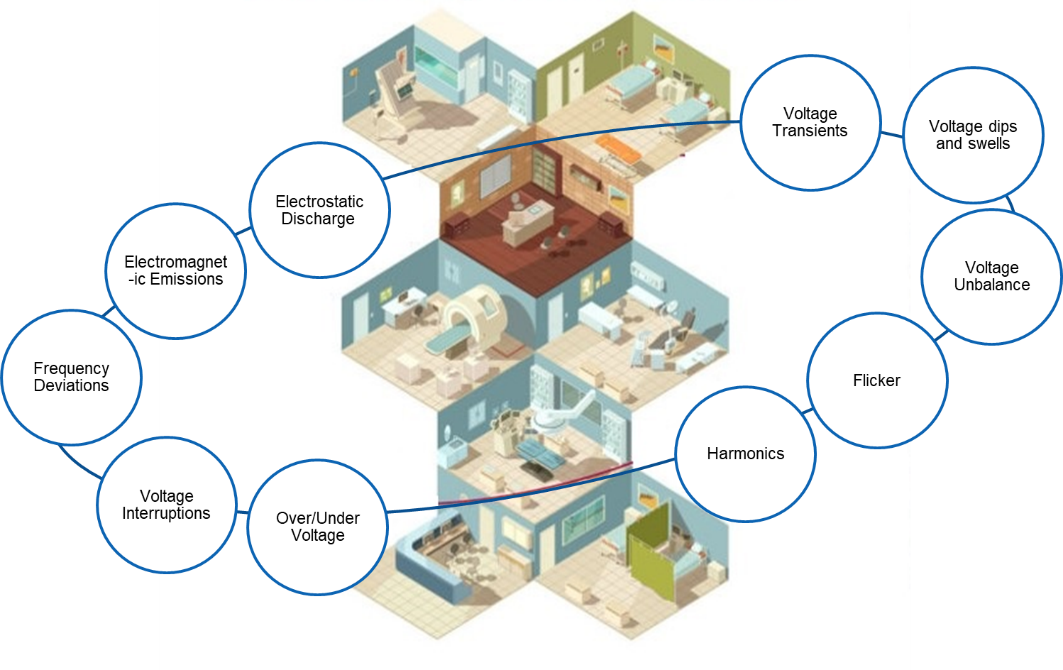In the Middle Eastern region, where the energy sector is rapidly evolving, the performance of an electrical system is directly linked to the interplay of its connected equipment and operating conditions. Proper simulation design and analysis are vital for an electrical system to perform at optimal levels. Power system studies play a pivotal role in ensuring the smooth and reliable operation of electrical systems, resulting in fewer unexpected outages and disruptions, while identifying potential safety hazards to ensure a safe working environment.
Power System Studies Help:
• Enhance System Resilience, Reliability, and Efficiency.
• Improve Safety.
• Support Capacity Planning, Expansion, and Upgradation Decisions.
• Reduce Downtime and Shutdowns.
• Reduce Energy Consumption.
• Ensure Compliance with Industry-Specific Standards and Regulations.
Our Offerings
JEF offers Power System Studies for: Substations | Wind Farms | Pooling Substations | Solar Photovoltaic Power Plants | Gas Turbine Power Plants | Hydropower Stations | Distribution Stations – LV Side | Oil & Gas | Water Treatment Plants | Data Centres | Process Plants | Steel Plants | Petrochemical Plants
Our Approach
Structured Processes for Guaranteed Results Our experts, with vast experience across varied applications, recommend the most optimal configuration and design for your electrical system to ensure safe and reliable operations using reputed tools like PSSE, ETAP, DIgSILENT, PSCAD, and more. Our unique value proposition of measure-simulate-validate offers a 360-degree perspective and foolproof solution under actual operating conditions.
Various Studies Conducted Under Power System Studies for Renewable Energy
• Load Flow Analysis: Essential for proper planning, design, and operation of generation, transmission, and distribution networks. Provides detailed insights into steady-state performance under different operating conditions.
• Short Circuit Studies: Determines the short-time rating of equipment and assesses the breaking, making, and braking capabilities of interrupting equipment.
• Relay Coordination Studies: Ensures proper settings for protection devices to achieve coordination and logical Time-Current Characteristic curve selectivity analysis.
• Harmonic Analysis: Assesses Voltage Total Harmonic Distortion (VTHD), Current Total Harmonic Distortion (ITHD), and Total Demand Distortion (TDD) to ensure harmonic levels are within permissible limits.
• Transient Stability Analysis: Evaluates system stability under transient events and computes critical clearing times.
• Motor Acceleration Studies: Calculates motor acceleration time and analyzes the impact of motor starting under various conditions.
• Arc Flash Studies: Identifies and analyzes arc flash hazards to determine the incident energy at electrical devices during live maintenance.
• Grid Impact Study: Provides analytical background for decisions about interconnecting different sources of electricity.
• Cable Thermal Analysis: Helps design cable systems to operate at maximum potential while ensuring secure and reliable operation.
• Reliability Studies: Offers advanced distribution reliability assessment to estimate power system performance and identify areas for improvement.
FAQ'S
1. Why are Power System Studies needed and important? o Power System Studies are crucial for the stable and reliable operation of the power system under both steady-state and dynamic scenarios. They help engineers understand the performance of an electrical system and provide solutions for unexpected events or faults.
2. How do we help our customers? o We provide detailed reports and findings, educate customers on operating their systems reliably, and identify safety concerns to avoid harm or injuries to personnel.
3. Why perform Load Flow Analysis? o To obtain voltages, real and reactive power at various buses, assess equipment loading, and ensure reactive power compensation and power factor maintenance.
4. Why perform a Short Circuit Study? o To design an electrical system that minimizes the impact of faults, isolates faulty parts, and maintains service to the healthy parts of the system.
5. What is the purpose of a Protection Coordination Study? o To verify that all protective equipment is properly coordinated, preventing unnecessary downtime and equipment breakdowns.
6. Why conduct an Arc Flash Study? o To identify arc flash hazards, estimate the likelihood and severity of injuries or damage, and determine if additional protective measures are required.




